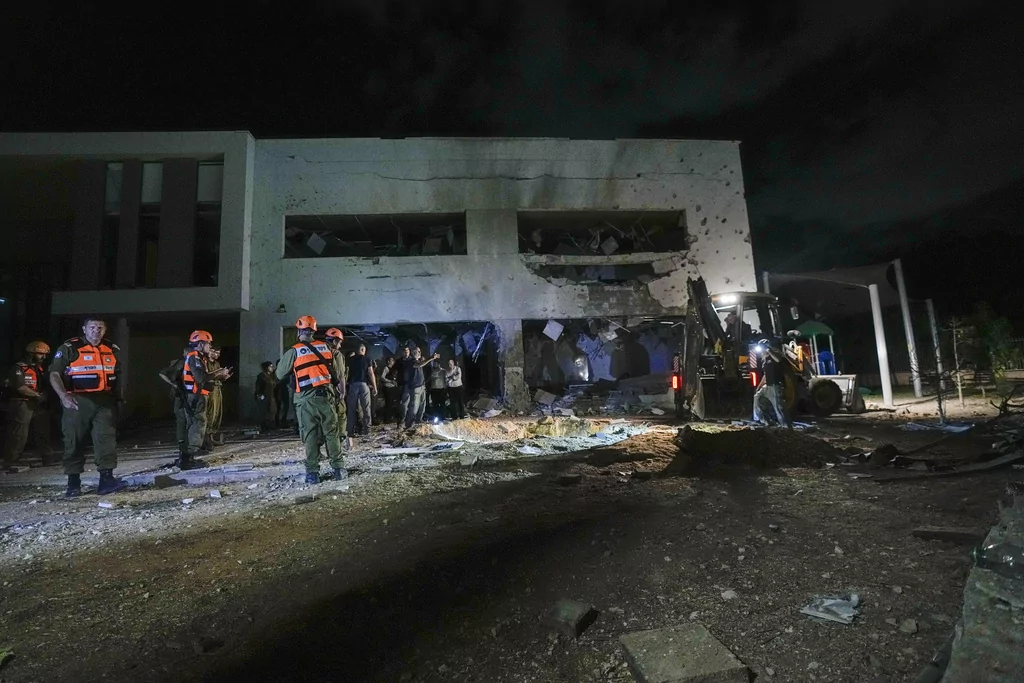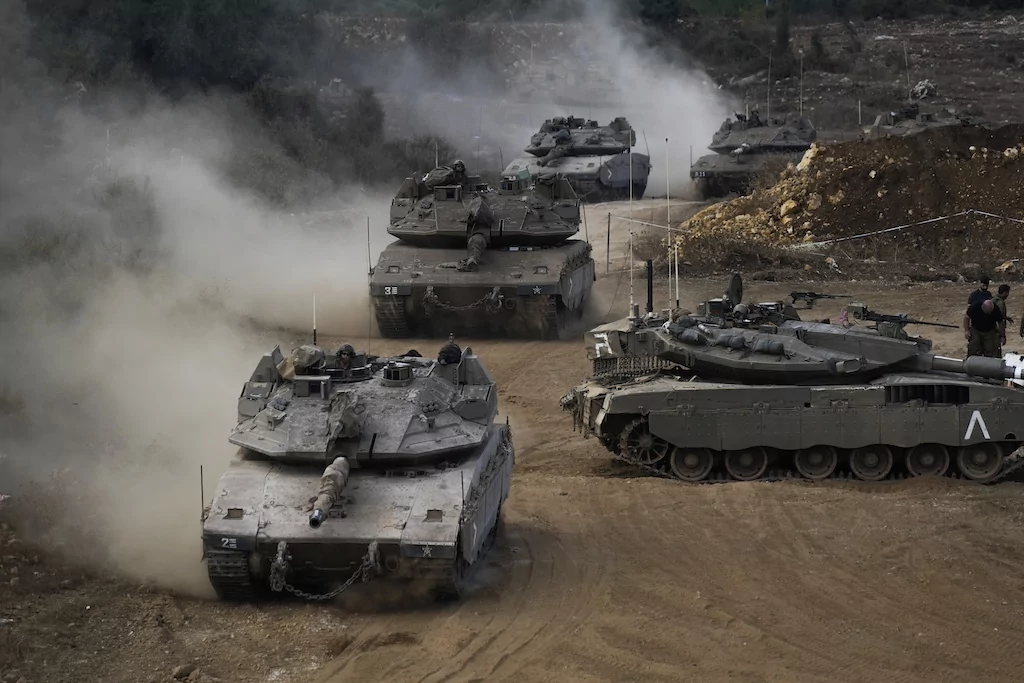By Mike Brest. Media: Washingtonexaminer
Israeli Prime Minister Benjamin Netanyahu vowed that his country would retaliate against Iran for Tuesday night’s ballistic missile assault.
Iran launched roughly 200 ballistic missiles at Israel on Tuesday night, though Israel’s military was largely able to thwart the assault with the help of the United States. It is only the second time Iran has attacked Israel directly over the last year, and it increases the possibility of an all-out regional war.
Netanyahu said Iran “made a big mistake” and “will pay for it.”
Israel intercepted the majority of the incoming missiles, though two U.S. Navy destroyers in the region, the USS Bulkeley and the USS Cole, aided them as well.
“Iran’s attack is a severe and dangerous escalation,” Rear Adm. Daniel Hagari, an Israeli military spokesman, said Tuesday night after the attack concluded. “… Our operational plans are ready. We will respond wherever, whenever, and however we choose, in accordance with the directive of the government of Israel.”

“There were a small number of hits in the center of Israel, and other hits in southern Israel,” Hagari added.
Iran’s Islamic Revolutionary Guard Corps cited the killings of Hezbollah Secretary-General Hassan Nasrallah and of Brig. Gen. Abbas Nilforoushan, the deputy commander of the IRGC for operations, as the reasoning for Tuesday’s attack. It also cited the assassination of Hamas leader Ismail Haniyeh, who was killed on July 31 in Tehran, Iran.
Israel has been fighting against several of Iran’s proxies in the Middle East over the last year, though Iran has largely stayed out of those conflicts. Tuesday is only the second time since the Middle East conflicts erupted in October 2023 that Iran attacked Israel from Iranian soil. In April, Iran fired 300 missiles and drones at Israel, almost all of which Israel and its allies intercepted.
It is unclear what Israel’s response could entail following Tuesday’s assault. After the April attack, Israel launched a single missile that hit a military air base near the city of Isfahan in central Iran in a show of restraint and a demonstration of its capabilities. This time around, Israel could hit back much harder.
Former prime minister Naftali Bennett called for Israel to target Iran’s nuclear program, central energy facilities, and the regime itself in response to the attack.
“Israel has now its greatest opportunity in 50 years, to change the face of the Middle East. The leadership of Iran, which used to be good at chess, made a terrible mistake this evening,” he said on X. “We must act ‘now’ to destroy Iran’s nuclear program, its central energy facilities, and to fatally cripple this terrorist regime.”
Hamas killed roughly 1,200 Israelis and kidnapped about 250 others on Oct. 7, 2023, a terrorist attack that was the pivotal moment that ignited the current conflict. A day later, Hezbollah, another Iranian-backed terrorist group, started firing projectiles from southern Lebanon into northern Israel.

Israel initially focused on defeating Hamas, though it still responded to Hezbollah’s cross-border fires. Israel’s war in Gaza has gone on for nearly a year and left significant destruction throughout the strip.
Israeli forces have killed several Hamas leaders and destroyed a majority of their brigades, but have also destroyed a lot of the infrastructure in Gaza, and the death toll is over 40,000. Israeli officials have said the ratio of killed civilians to combatants is roughly 1 to 1. About 100 hostages are still being held in Gaza.
Over the last couple of weeks, Israeli forces have ramped up their attacks on Hezbollah, killing several senior leaders, including Nasrallah. Israel also announced limited ground incursions into southern Lebanon earlier this week.
Despite killing most of Hezbollah’s top leaders, the group has still been able to carry out additional attacks on Israel.
Israel’s air campaign is believed to have killed about 1,000 people, according to CBS News, and the displacement of as many as 1 million Lebanese people from the southern part of the country, according to Prime Minister Najib Mikati.
To a much lesser extent, Israel has also fought with the Iranian-backed Yemen-based Houthis, who have largely focused their attention on shutting down global shipping through the Red Sea. Infrequently, the Houthis have launched missiles toward Israel, and Israel has, in kind, retaliated.




























































































Discussion about this post